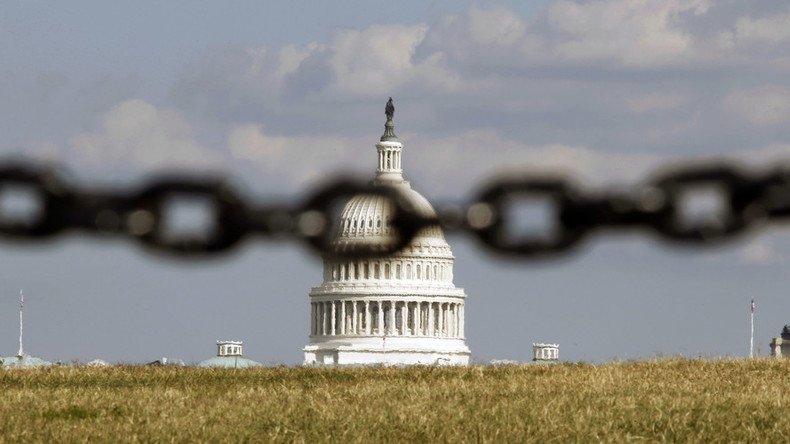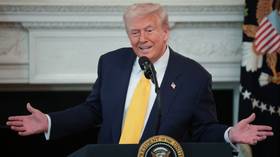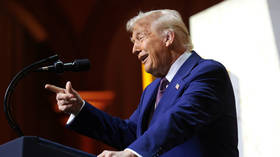House Republicans vote to ban cash transfers to Iran after Obama's $1.7bn 'ransom'

Congress has voted overwhelmingly in favor of a bill prohibiting any more cash transfers to Iran, after President Obama’s January transaction, totaling $1.7 billion, which he is accused of using as ransom to free American prisoners.
The Republicans consider the January transfer an outrage that violates US policy. They said giving Iran such a sum in cash would only make it easier to fund terrorism.
In January Barack Obama declared the money was payment for a weapons deal that was never formalized. It was only recently that the administration admitted that the release of prisoners was of prime concern, and that the first payment was delayed to ensure that happened.
In the end, the sum paid was $1.7 billion – much more than the $400 million initially disclosed by the administration. The transfer also coincided with the signing of the nuclear deal with Iran that many in Washington, as well as Israel, were strongly against.
With a vote of 254-163, the new bill enjoyed the backing of 16 Democrats who switched sides. The bill, the Republicans believe, would reaffirm Washington’s position of not negotiating with hostage-takers.
Put forth by House Foreign Affairs Committee Chairman Ed Royce (R-California), the bill is aimed at “prohibiting future ransom payments to Iran,” according to its author, as cited by the Washington Examiner.
"It is not in the interest of the United States to have the regime have cold, hard cash," Royce went on, adding that the president’s own Justice Department had had reservations about the massive cash transfer.
But New York Democrat Eliot Engel defended Obama’s decision to pay, accusing the Republicans of distorting the facts of what the administration did, adding that the amount was also intended as repayment of Iranian money the US was holding, plus interest.
"I think holding Iran's money until Iran released American detainees was a pretty shrewd bargain," Engel told Congress. "But whatever we think, using the word 'ransom' turns this bill into a political hot button, a poke in the eye of the administration."
The Republicans, however, were adamant that the State Department had already used the word “leverage” in reference to the payment, and that, according to Leonard Lance (R-NJ) is the same as “ransom.”
Among other things, the bill holds that the decision never to make cash transfers would only be reversed if Iran stopped being a state sponsor of terrorism in Washington’s eyes, or if the US no longer perceived it as a money-laundering hub.
President Obama has warned he will veto the bill, which means Senate Republicans in favor of the document would need to secure a two-thirds majority.
Another recent bill, dubbed the ‘No Ransom Payments Act’, sponsored by Florida Senator Marco Rubio and introduced early September, promised to halt cash transfers to Iran unless it returned the $1.7 billion payment which the Republicans say was entirely meant to resolve the hostage situation.
"After pressure, the administration admitted the timing of the payments in relation to the hostage release was not as coincidental as it had initially claimed,” Rubio said then in an op-ed for the Tampa Bay Times, adding that the payment was “ransom… pure and simple.”
His bill would also force Iran to pay $55 billion to victims of alleged Iranian terrorism – a sum that has been paid out by US courts.
This comes as the dust settles on the nuclear deal intended to curb Iran’s nuclear ambitions – a deal Iranian President Hassan Rouhani isn’t entirely satisfied with. On Thursday he addressed the UN General Assembly in New York, accusing the US of not fully complying with the terms of the agreement. He added that this would only serve to “further erode the credibility of the US in the world.”
He went on to lambast the world powers which were also party to the deal, accusing them of spreading “borderless violent extremism and terrorism” in the Middle East, and not learning from the lessons of the 9/11 attacks.















